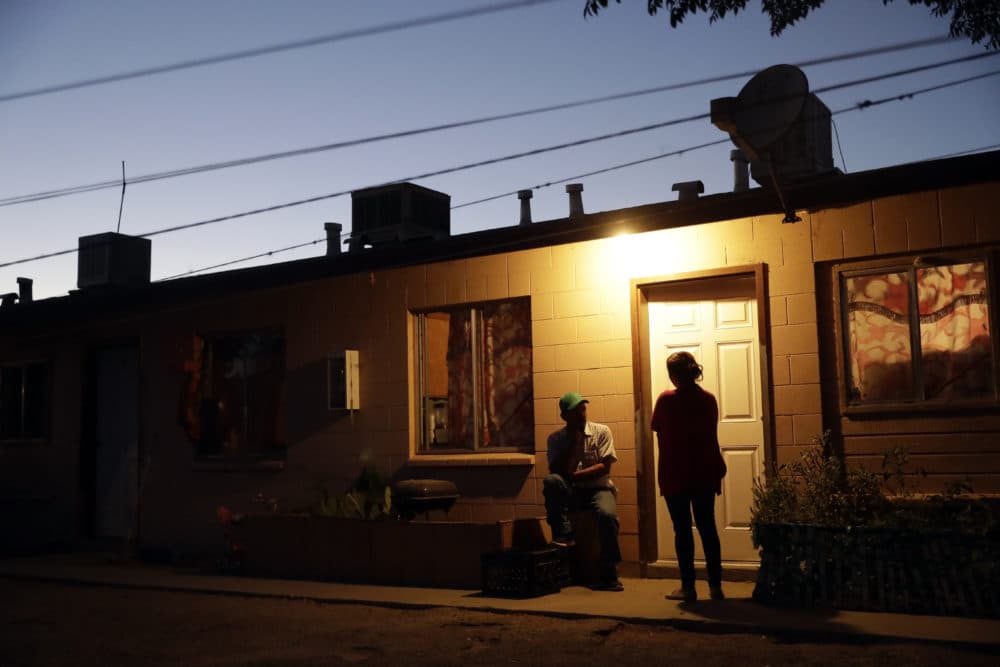Advertisement
Commentary
Presidential Candidates Tiptoe Toward A Basic Income. They Should Take The Last Step

Like a precocious child, the nascent Democratic presidential field has nearly outgrown, if not its clothes, then a single debate stage. Sen. Cory Booker’s entry Friday as the eighth major candidate also showed the contest’s advanced intellectual development, reflected in a commendably deep focus on poverty. Booker has a plan to help the needy, Sen. Kamala Harris has two, and Sen. Sherrod Brown, who may run, is co-sponsoring still another.
Add in a proposal percolating in Congress, and a total of five Democratic bills aspire to expand the American dream. So which of this quintet is fairest of them all?
Columbia University researchers came up with multiple answers, based on which metric you use. But overall, one of Harris’s bills, the costliest of the bunch, would free the most lives from want. (The research didn’t review a sixth bill from Sen. Elizabeth Warren that would build affordable housing.)
Here’s the rub: That Harris bill and and the Congressional plan tiptoe close to a more ambitious proposal that’s worth testing — giving cash to underprivileged Americans.
Both bills boil down to expanding the Earned Income Tax Credit (EITC), a federal wage subsidy for the working poor. The EITC, in turn, was enacted in
the 1970s as a watered-down version of a universal, federal cash payment to all
Americans. (Congress feared that payouts to the jobless would encourage continued idleness, so it confined cash to workers.)
All of the Democratic plans are worthy, if that’s the best we can get. Even worthier would be to go the distance and test the notion of providing poor people, employed or not, a living cash income. A pilot program, using a representative sample of beneficiaries from our current anti-poverty system, would determine if carping about cash assistance, from left and right, has merit:
It’s not universal! Some activists, like Facebook co-founder Chris Hughes and Internet entrepreneur/Democratic activist Natalie Foster, want every American, rich and poor, to receive federal cash. They argue that political support is more secure for programs that pay off everyone, like Social Security, withering when allegedly lazy poor people get a handout.
These advocates misread the politics; Social Security is beloved at least as much because it’s tied to work in a culture built on the Protestant work ethic. They also muff the economics. Spread to all Americans, truly generous cash payments — some suggest $10,000 per person a year — would require almost every dime Uncle Sam collects currently in taxes.
If the poor aren’t already slothful, handouts will make them so! A federal study found that people receiving unemployment benefits “spent more time in front of the television and sleeping than upgrading their working skills,” Forbes contributor Milton Ezrati warns. Similarly, he adds, local experiments with a guaranteed income between the 1960s and 80s also detected they cut the desire to work.
He should have read the results of those experiments more closely. Subjects often underreported their earnings; federal data showed they worked more than they acknowledged. To the extent some people did work less, it appeared that the cash allowed them either to get more education (improving their work prospects) or to leave lousy jobs in search of better ones. Neither would be an awful policy outcome.
Others note that Alaska doles out annual checks to residents from oil revenues,
fluctuating in recent years between $800 and $2,100 per person. Evidence suggests that the Land of the Midnight Sun has not become the Land of the Lazy Deadbeats.
The poor will blow the dough! Recipients of current welfare programs “often have trouble managing their lives, much less their finances,” Ezrati notes. What’s to stop them from buying cigarettes or booze rather than the necessities that transform an impoverished existence into a middle-class one?
It may be that our underclass is less responsible than Brazil’s, which is one reason to pilot cash handouts before legislating them across the board. I mention Brazil because of its stunning success with its Bolsa Familia (Family Grant) program, giving the equivalent of thousands of dollars per person annually to impoverished citizens.
Coupled with regulations on recipients — mothers rather than fathers get the grants, and families must tend to their kids’ health needs — Bolsa Familia disproved fears that the poor would mismanage their money. The administrative cost would make the most frugal Republican banker starry-eyed, as dispensing cash is simpler than running bureaucracies to deliver housing, food and other necessities. That’s why the late conservative economist Milton Friedman favored a version of cash payouts.
It costs too damn much! The Democratic plans aren’t as fiscally conservative as they should be. If a living cash handout worked as advertised, we should fund it with the money spent on our existing social safety net. (Tapping proceeds from a new carbon tax as well would make that energy cost-increasing measure more palatable.)
On the other hand, the plans cost about the same as Donald Trump’s peculiar poverty plan of tax cuts for rich people. Stacked against the president’s alternate reality, the Democratic primaries are off to a realistic, substantive start.
